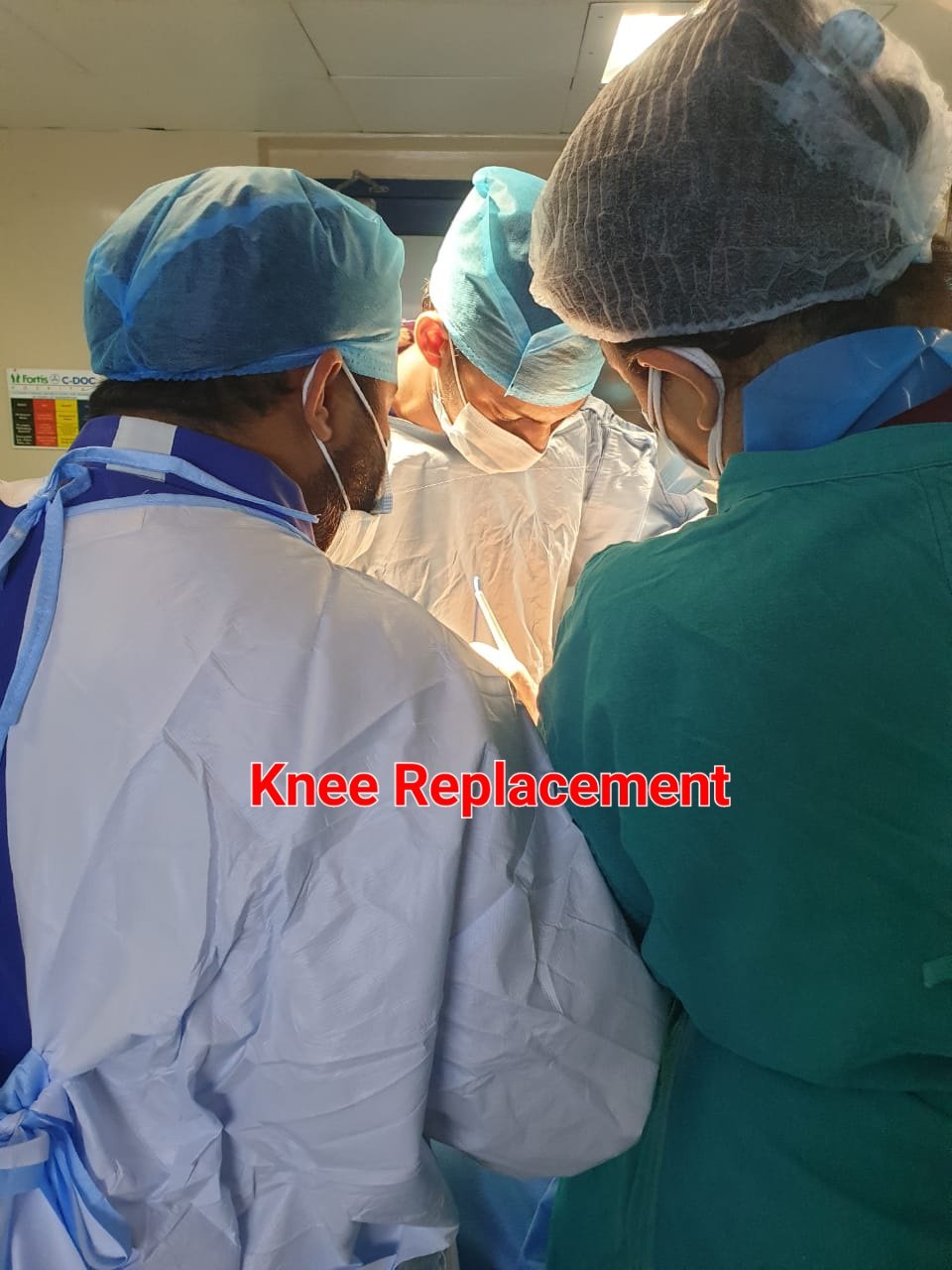Knee Pain: When to Consider Surgery

Knee pain can significantly impact your quality of life, making even simple daily activities challenging. Understanding when knee pain requires surgical intervention versus when conservative treatments are sufficient is crucial for making informed decisions about your health. Dr. Bipin Solanki provides expert guidance on knee pain management and surgical decision-making.
Understanding Knee Pain: Causes and Types
Knee pain can stem from various causes, each requiring different treatment approaches:
Common Causes of Knee Pain
- Osteoarthritis: Wear and tear of joint cartilage
- Rheumatoid Arthritis: Autoimmune joint inflammation
- Sports Injuries: ACL tears, meniscus damage
- Overuse Injuries: Tendonitis, bursitis
- Mechanical Problems: Loose bodies, dislocated kneecap
- Age-related Changes: Degenerative joint disease
Types of Knee Pain
- Acute Pain: Sudden onset, often from injury
- Chronic Pain: Long-term, persistent discomfort
- Inflammatory Pain: Swelling, warmth, stiffness
- Mechanical Pain: Pain with movement or weight-bearing
When Conservative Treatment is Sufficient
Many knee conditions respond well to non-surgical treatments:
Conservative Treatment Options
- Physical Therapy: Strengthening and flexibility exercises
- Medication: Anti-inflammatories and pain relievers
- Injections: Corticosteroids, hyaluronic acid, PRP
- Lifestyle Modifications: Weight loss, activity modification
- Bracing: Support and stability devices
- Alternative Therapies: Acupuncture, massage therapy
Conditions That Often Respond to Conservative Care
- Mild to Moderate Osteoarthritis: Early-stage joint degeneration
- Patellofemoral Pain Syndrome: Runner's knee
- Mild Meniscus Tears: Small cartilage tears
- Tendonitis: Inflammation of tendons
- Bursitis: Inflammation of fluid-filled sacs
When Surgery Becomes Necessary
Certain conditions and symptoms indicate that surgery may be the best option:
Red Flags That Suggest Surgery
- Severe Pain: Pain that significantly limits daily activities
- Progressive Symptoms: Worsening pain despite treatment
- Mechanical Symptoms: Locking, catching, giving way
- Severe Joint Damage: Advanced arthritis on imaging
- Failed Conservative Treatment: No improvement after 3-6 months
- Quality of Life Impact: Inability to perform desired activities
Specific Conditions Requiring Surgery
- Complete ACL Tears: Especially in active individuals
- Large Meniscus Tears: Causing mechanical symptoms
- Severe Osteoarthritis: Bone-on-bone contact
- Fractures: Displaced or unstable fractures
- Infection: Septic arthritis requiring drainage
- Tumors: Benign or malignant bone tumors
Types of Knee Surgery
Different knee conditions require different surgical approaches:
Arthroscopic Surgery
Minimally invasive procedures using small incisions:
- Meniscus Repair/Removal: Treating cartilage tears
- ACL Reconstruction: Rebuilding torn ligaments
- Cartilage Debridement: Smoothing damaged cartilage
- Loose Body Removal: Removing bone or cartilage fragments
- Synovectomy: Removing inflamed joint lining
Joint Replacement Surgery
Replacing damaged joint surfaces with artificial components:
- Partial Knee Replacement: Replacing only damaged compartment
- Total Knee Replacement: Replacing entire joint surface
- Revision Surgery: Replacing failed previous replacement
Other Surgical Procedures
- Osteotomy: Realigning bone to shift weight
- Cartilage Transplantation: Replacing damaged cartilage
- Fracture Fixation: Stabilizing broken bones
Making the Decision: Factors to Consider
Several factors influence the decision to proceed with surgery:
Medical Factors
- Severity of Condition: Extent of joint damage
- Response to Treatment: Success of conservative measures
- Overall Health: Ability to tolerate surgery
- Age and Activity Level: Expected outcomes
Personal Factors
- Pain Tolerance: Individual pain threshold
- Activity Goals: Desired level of function
- Lifestyle Impact: How pain affects daily life
- Recovery Time: Ability to commit to rehabilitation
Practical Considerations
- Work Requirements: Physical demands of job
- Support System: Help during recovery
- Financial Considerations: Insurance coverage, costs
- Timing: Optimal time for surgery
Preparing for Knee Surgery
Proper preparation improves surgical outcomes:
Pre-Surgery Preparation
- Medical Evaluation: Complete health assessment
- Physical Therapy: Pre-habilitation exercises
- Lifestyle Modifications: Smoking cessation, weight management
- Home Preparation: Safety modifications
- Support Planning: Arranging post-surgery help
Recovery Expectations
Understanding recovery helps set realistic expectations:
Recovery Timeline
- Arthroscopic Surgery: 2-6 weeks for full recovery
- Partial Knee Replacement: 6-12 weeks
- Total Knee Replacement: 3-6 months
- Complex Procedures: 6-12 months
Success Rates
- Arthroscopic Surgery: 80-90% success rate
- Knee Replacement: 90-95% success rate
- ACL Reconstruction: 85-90% return to sports
Alternative and Emerging Treatments
New treatment options may delay or avoid surgery:
- Stem Cell Therapy: Regenerating damaged tissue
- Platelet-Rich Plasma (PRP): Natural healing enhancement
- Viscosupplementation: Joint lubrication
- Regenerative Medicine: Tissue engineering approaches
Why Choose Dr. Bipin Solanki for Knee Surgery?
Dr. Bipin Solanki brings extensive expertise in knee surgery:
- Specialized Training: Advanced knee surgery techniques
- Comprehensive Evaluation: Thorough assessment and diagnosis
- Personalized Treatment: Customized surgical plans
- Minimally Invasive Approach: Faster recovery, less pain
- Comprehensive Care: From evaluation to full recovery
Expert Knee Pain Evaluation
Don't let knee pain limit your life. Dr. Bipin Solanki can evaluate your condition and recommend the most appropriate treatment approach, whether conservative or surgical. Contact us for a comprehensive knee evaluation and personalized treatment plan.
Consult Dr. Bipin Solanki